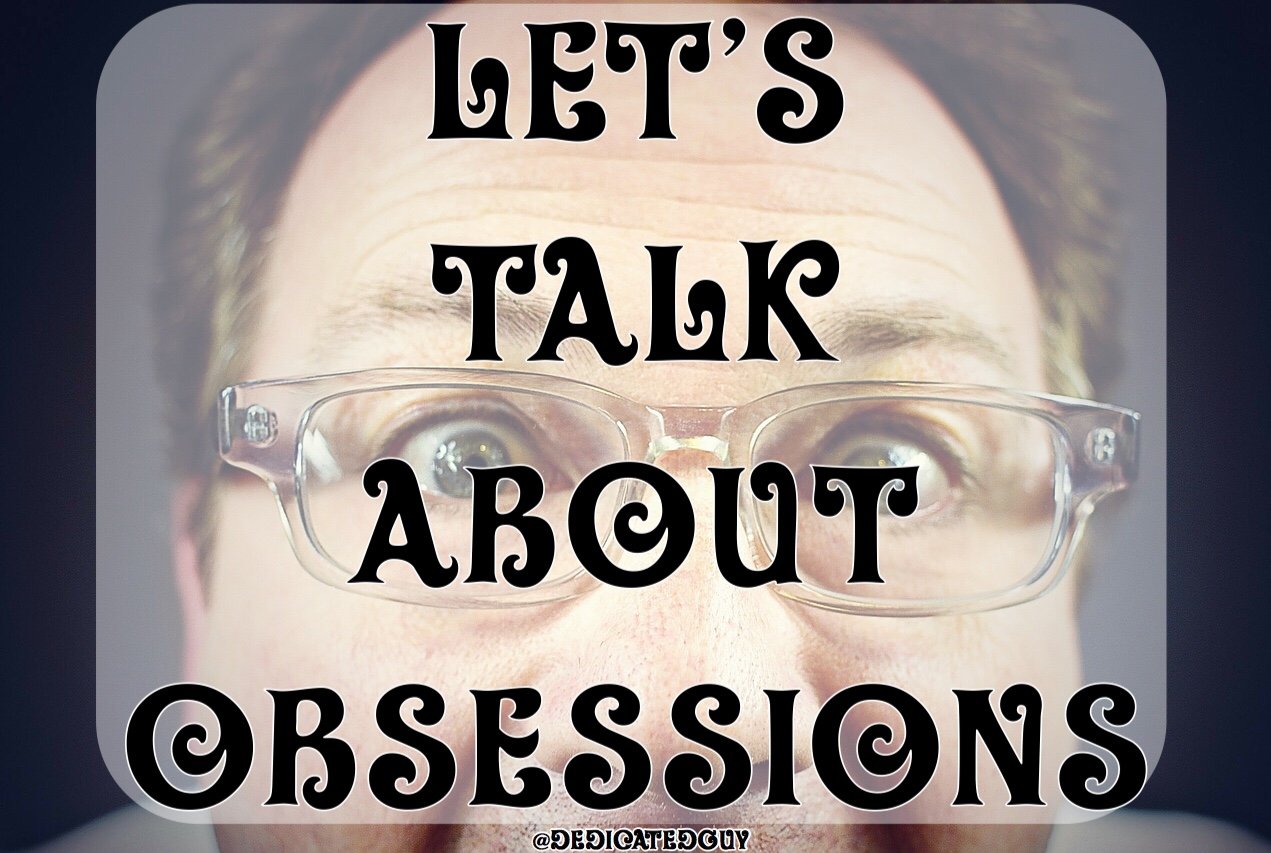
The majority of the people have had moments in which, due to feelings of anxiety, stress or difficult situations, we might experience a sequence of repetitive and uncontrollable ideas or thoughts that can cause a high levels of anguish.
However, although these experiences are generally very normal, there is always the little possibility of these thoughts turning into obsessions. So, in order for this not to happen, it will be very useful to know some relevant information about this issue, what is consists of, as well as how can it be handled.

What is an obsession?
An obsession is the inability of a person to stop thinking about a particular topic or feeling a certain emotion without a high amount of anxiety. When obsessed, an individual continues the obsession in order to avoid the consequent anxiety. | Source
Obsessions are a way of thinking in which the mind of the person cannot let go a certain idea. Usually, these ideas are associated with some event, incident or situation that causes concern for the person affected, and this generates feelings of fear or anguish.
For an idea to be considered an obsession, it must have certain particularities. The first is that these ideas must be repetitive and recurrent, which means they must constantly be present in the mind of the person.
In addition, they must also appear involuntarily and be uncontrollable, this means that, no matter how hard the person tries not to think about them or eliminate them from their head, these ideas will always come back, perhaps even stronger.

They are well aware that their compulsive nature exists and is uncontrollable, but their mental illness causes them to place the original obsession in the background until attention is diverted from them to another. | Source
The most common causes that give rise to these obsessive ideas are the states of anxiety and psychological stress, because both of these issues make the person feel very worried and sometimes even experiencing recurring fears.
Therefore, the person is trapped in a vicious circle in which the anxiety causes a series of obsessive ideas, which in turn contribute to feed the symptoms of such anxiety.
What is anxiety?
Anxiety is an emotion characterized by feelings of tension, worried thoughts and physical changes like increased blood pressure. | Source
What is psychological stress?
Psychological stress is the mental and/or emotional strain from activities and events in life. It can elicit a host of emotions such as frustration, anxiety, anger, sadness and so on. These different emotions are sometimes present with certain mental health conditions despite the absence of any stimulus such as a life event triggering it. | Source
These obsessive ideas are manifested in many different ways, and in most cases they will be influenced by the personality of the individual, as well as the context that surrounds said person. Obsessive behaviors related to having everything in order, or having everything perfectly clean or related to physical appearance, are common examples of the manifestation of these ideas that disturb the mind of the person.

What could be the difference between a reasonable concern and an obsession?
Even though a concern can certainly become an obsession in some cases, these 2 aren’t the same and there are some key differences that allow to set apart, a regular concern from a real obsession.
Unlike regular concerns, obsessive thoughts are much more intense and with frequency. Their duration is also greater, so they are also likely to cause much more discomfort.

Also, with obsessions, the individual has almost no control over them, and as mentioned before, these ideas are extremely hard to let go for the affected person.
With obsessions, the ideas do not have to be reasonable at all. Which means that whatever thought there is in the person’s mind may as well be incoherent or have no rational basis. This is why we know the popular example of people always washing their hands, even if they have already washed them 5 minutes ago.
For example, the person may constantly think that if the light is left on, something bad may happen to him/her when he/she leaves the house, therefore he/she performs compulsive and constant checks, while the truth is, having the lights on have nothing to do with any risks whatsoever, so joining 2 totally unrelated facts is clearly something without any logic.
Although these people may come to realize and accept that their ideas do not have any logical explanation, they are still unable to get rid of them by their own.
If allowed to become too consuming, obsession causes us to devalue important dimensions of our lives and tolerate their atrophy and even their collapse. | Source

How should we handle this issue?
There always some actions any person can adopt in order to help with any kind of problem.

By putting some time of the day into doing enjoyable things, whether this is doing exercise, going out or even reading a book, the important thing here is to distract our mind with something we enjoy, so the mind is busy focusing on this activity, instead of focusing in the obsessive idea.
It is also important to always try and look for ways to understand ourselves and our mind, especially when its doing things we don’t like, in this case, expressing anything that causes worry, and writing it down might be a huge help for the person, and besides, this can also work as a kind of personal and private therapy.
And, as it is always the case with issues related to stress, trying some relaxation techniques will always be worth it

Conclusion
All obsessions can be considered as the unconscious respond to a deep damage, that results in an addiction, compulsion or attachment.

Knowing the emotional conflict is a compression that facilitates awareness in the obsessed individual, and allows the identification and recognition of their situation.
The recovery is achieved when the individual remains aware of the conflict that caused the obsession, changes the previous perception of those facts and starts to really understand the psychological reaction that took place.
An important thing is to start taking decisions that keep the person in a state of reconciliation with him/herself and with life, because this way, the person will avoid the acquisition of a new obsession or the resurgence of the old one.
Have you ever felt obsessed about something? What was this obsession all about?
What did you do to overcome it?
References
healthhype – psychological stress
streetdirectory – psychology - obsession
mayoclinic – stress management
Images sources
All images are from pixabay

If these titles sound interesting to you, I assure you the articles will be even better!

Procrastination and psychology
Why are some people hypocrites?
Why some people are always late to everything?
How can suggestions affect our lives?
